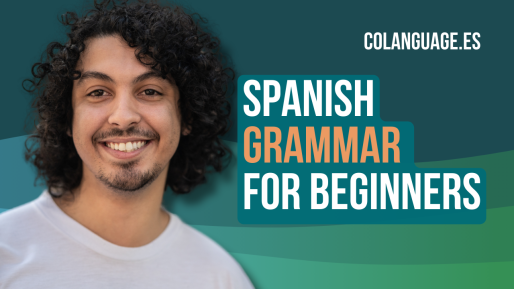Personal subject pronouns in Spanish (I, he, she, they) Share Copied!
Spanish Greetings and Farewells A1 To introduce oneself
Learn the subject pronouns (I, you, he, she, it, we, you, they) in Spanish! Practise with our exercises and audio materials.
<< Saludos y despedidas (Greetings and Farewells)
Video
Podcast
What is a subject pronoun?
A subject pronoun is a type of personal pronoun that carries out the action expressed by a verb.
-
Ella estudia medicina. (She studies medicine.)
-
Tú eres muy inteligente. (You are very intelligent.)
-
Yo leo libros de ciencia ficción. (I read science fiction books.)
Subject pronouns in Spanish
In Spanish, personal subject pronouns are essential for indicating who is performing the action in a sentence, and they come in both singular and plural forms.
Singular personal pronouns (yo, tú, él, ella)
Let's have a look at the singular subject pronouns:
|
Subject pronouns (singular) |
Spanish | English |
|---|---|---|
| Yo (I) |
Yo soy español. |
I am Spanish. |
| Tú (You) | Tú lees un libro. | You read a book. |
| Él (He) | Él canta en un coro. | He sings in a choir. |
| Ella (She) | Ella corre rápido. | She runs fast. |
Plural personal pronouns (nosotros, vosotros, ellos)
Take a close look at the following examples for plural subject pronouns:
|
Subject pronouns (plural) |
Spanish | English |
| Nosotros/-as (We) | Nosotras estudiamos juntas. | We study together. |
| Vosotros/-as (You) |
Vosotros jugáis a fútbol. |
You play soccer. |
| Ellos/-as (They) | Ellos estudian español. | They study Spanish. |
Plural subject pronouns have two forms, the masculine and the feminine.
For example, "nosotros" is used for a group of males, while "nosotras" is used for a group of females.
Listening exercise
You can practise using the singular and plural subject pronouns with this exercise.
| Spanish | English | |
|---|---|---|
| Daniel |
¿Tú vienes a la fiesta esta noche? |
Are you coming to the party tonight? |
| María |
Sí, yo voy. ¿Y tú? |
Yes, I am going. And you? |
| Daniel |
Nosotros también vamos. ¿Tus amigas también vienen? |
We are also going. Are your friends coming too? |
| María |
Sí, ellas llegarán más tarde. |
Yes, they will come later. |
Ways of saying "you" in Spanish
In Spanish, unlike English, there are two ways of saying “you”, depending on if we say it in a formal or informal way. Each way has a singular and plural form too.
Informal ways of saying "you" (tú, vosotros)
| Number | Spanish | English |
|---|---|---|
| Singular |
Tú vas al parque con tu perro. |
You go to the park with your dog. |
| Plural |
Vosotros estáis estudiando para el examen. |
You are studying for the exam. |
In informal situations, use the pronouns "tú" and "vosotros/-as".
Listening exercise
This exercise is designed for practicing the informal ways of addressing someone in Spanish. Have a listen!
| Spanish | English | |
|---|---|---|
| Daniel |
Hola, ¿tú vienes a la reunión hoy? |
Hello, are you coming to the meeting today? |
| María |
Sí, yo voy a ir. ¿Y vosotros váis? |
Yes, I'm going to go. And are you going? |
| Daniel |
Nosotros también vamos a asistir. |
We are also going to attend. |
Formal ways of saying "you" (usted, ustedes)
| Number | Spanish | English |
|---|---|---|
| Singular |
Usted necesita llamar al médico para programar una cita. |
You need to call the doctor to schedule an appointment. |
| Plural |
¿Ustedes asistirán a la conferencia de mañana? |
Are you attending the conference tomorrow? |
In formal settings, use the pronouns "usted" and "ustedes".
Listening exercise
Let's put into practise the polite way of saying "you" in Spanish.
| Spanish | English | |
|---|---|---|
| Daniel |
Buenas tardes, ¿cómo está usted? |
Good afternoon, how are you? |
| María |
Estoy bien, gracias. ¿Y usted? |
I'm fine, thank you. And you? |
| Daniel |
¿Ustedes van a venir a la cena del viernes? |
Are you coming to the dinner on Friday? |
| María |
Lamentablemente nosotros no podremos acudir. |
Unfortunately, we won't be able to attend. |
Key takeaways
Here is a quick summary of this lesson.
- Subject pronouns in Spanish indicate who is performing the action in a sentence.
- They come in both singular and plural forms, representing different subjects.
- Spanish has formal and informal forms of "you", important for social context and politeness.
Subscribe to our social media channels to get free daily exercises!


